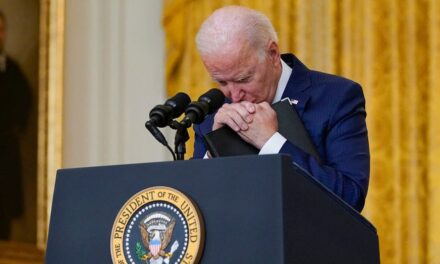A pastor from a small town in the United States has recently made headlines after he bravely resisted a teenage carjacker. This incident has sparked a deep conversation about the moral compass of the current generation, with the pastor expressing concerns over what he terms a ‘Godless generation.’ His words have ignited discussions around youth behavior, faith, and community values.
The incident occurred late one evening when Pastor John Smith was leaving a church event. As he approached his vehicle, a group of teenagers confronted him, demanding he hand over the keys to his car. In that moment, Pastor Smith decided to stand his ground. Instead of capitulating to their demands, he engaged with them, attempting to dissuade them from committing the crime.
Witnesses report that the pastor, a well-loved figure in the community, was not just fearful but rather deeply concerned for the futures of the youths involved. “I saw God in those kids—even when they were trying to take something from me,” Pastor Smith recounted. This approach of confronting the issue head-on instead of retreating allowed him to connect with the young people, who eventually fled the scene empty-handed.
In the aftermath of the carjacking attempt, Pastor Smith took to social media to express his thoughts. He shared his belief that many young individuals are drifting away from faith and moral standards, leading them towards paths of crime and disobedience. “I can’t help but think that they are a product of our society—a generation that has lost its way,” he wrote in a heartfelt post that quickly gained traction online.
Pastor Smith’s choice of words, labeling the current youth as a ‘Godless generation,’ has stirred both support and criticism. Many agree that there is a decline in traditional values and religious adherence among young people today. They argue that the rise in crime rates is linked to a lack of parental guidance and societal structure, with a significant number of teenagers now being raised in secular households.
On the contrary, critics argue that such terminology can be overly simplistic and incendiary. They assert that many young people are grappling with various challenges, including economic instability, mental health issues, and societal pressures, which can lead them to make poor decisions. “We need to understand these kids, not just blame them,” one local educator commented. “They are facing a world that is very different from the one we grew up in.”
Pastor Smith has acknowledged the multi-faceted issues facing today’s youth. “It’s not just about faith, it’s about the environment, the influences they are exposed to, and the lack of community support,” he said. He emphasizes the importance of dialogue and understanding to address the root causes of youth crime and moral decay.
The conversation has extended beyond social media into churches and community centers, where discussions on youth engagement and moral education are becoming more prevalent. Fellow clergy members are joining the conversation, highlighting programs that focus on mentorship and outreach. Churches around the country are beginning to implement youth programs aimed at instilling values and providing a support system to prevent similar situations.
Moreover, local law enforcement has taken note of the rising concerns within the community. Police Chief Mary Robinson stated that they are actively working to build relationships with the youth in the area. “Our goal is to foster a sense of trust and cooperation between the police and young people,” she shared. “We want them to know we’re here to protect and guide them, not just to enforce the law.”
Community activists have also joined the fray, advocating for programs that offer safe spaces for youth and opportunities for positive engagement. “It takes a village to raise a child,” said community organizer Sarah Williams. “We must create environments where our kids feel valued and connected—even if they don’t have a traditional family structure.”
Pastor Smith remains hopeful that his experience will serve as a catalyst for change. He emphasizes the importance of showing love and support to the younger generation, despite the challenges they face. “What I witnessed that day was not just an attempt at theft; it was a cry for help,” he explained. “These kids need support, guidance, and most importantly, faith in something greater than themselves.”
As discussions continue regarding the implications of the pastor’s experience and his subsequent comments, one thing remains clear: the conversation about faith, morality, and community involvement is more critical now than ever. Churches, police, parents, and community leaders are working together to create a collaborative approach to help the youth of today find their way.
Inspiration can come in many forms, and Pastor Smith’s experience has ignited a fire in his community to address these pressing issues. Whether through prayer, mentorship, or simply being present for the youth, many are recognizing that change must begin locally and be given the care it deserves.
The emergence of such discussions reflects an urgent need to evaluate the moral foundation that guides the youth of today. Parents, educators, and community leaders are encouraged to foster an environment where open dialogue about faith and values thrives. It is a call to action for everyone to become more involved in the lives of young individuals who may feel lost or forgotten.
Ultimately, Pastor Smith’s decision to confront the teenage carjacker was not just an act of self-defense but a moment of reflection on the broader societal issues at play. As he continues to pray and seek guidance, he urges others to join him in hoping for a brighter future for all children, regardless of their circumstances.
It remains to be seen how this dialogue will evolve within the community and beyond. However, what is clear is that the intersection of faith, morality, and community responsibility is paramount as society navigates the complexities of modern life. Pastor Smith’s story serves as a hopeful reminder that change is possible when individuals take a stand and work together towards the common good.
As communities reflect on their values and the influences affecting their youth, there lies an opportunity to foster a more compassionate society. By encouraging young people to embrace positive choices, mentoring them through challenges, and providing spaces for open conversations, there is hope for a generation that not only believes in a higher power but also adheres to values that uplift and unite.
In the face of adversity, it is often the strength of communities, rooted in faith and goodwill, that can illuminate paths that were once obscured by uncertainty. The journey towards addressing the notion of a ‘Godless generation’ requires collaboration, understanding, and an unwavering commitment to providing the love and support that every young person deserves.
































